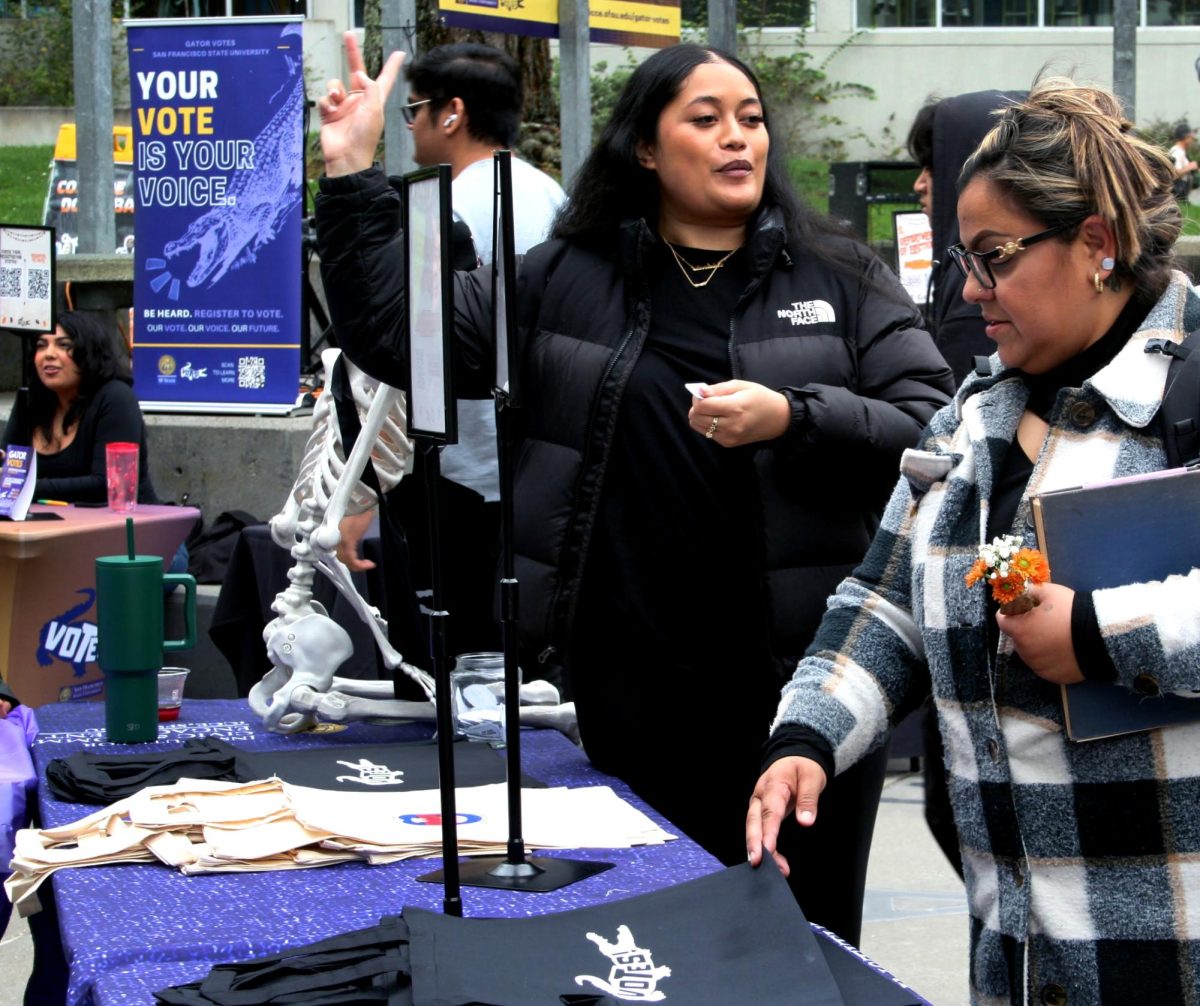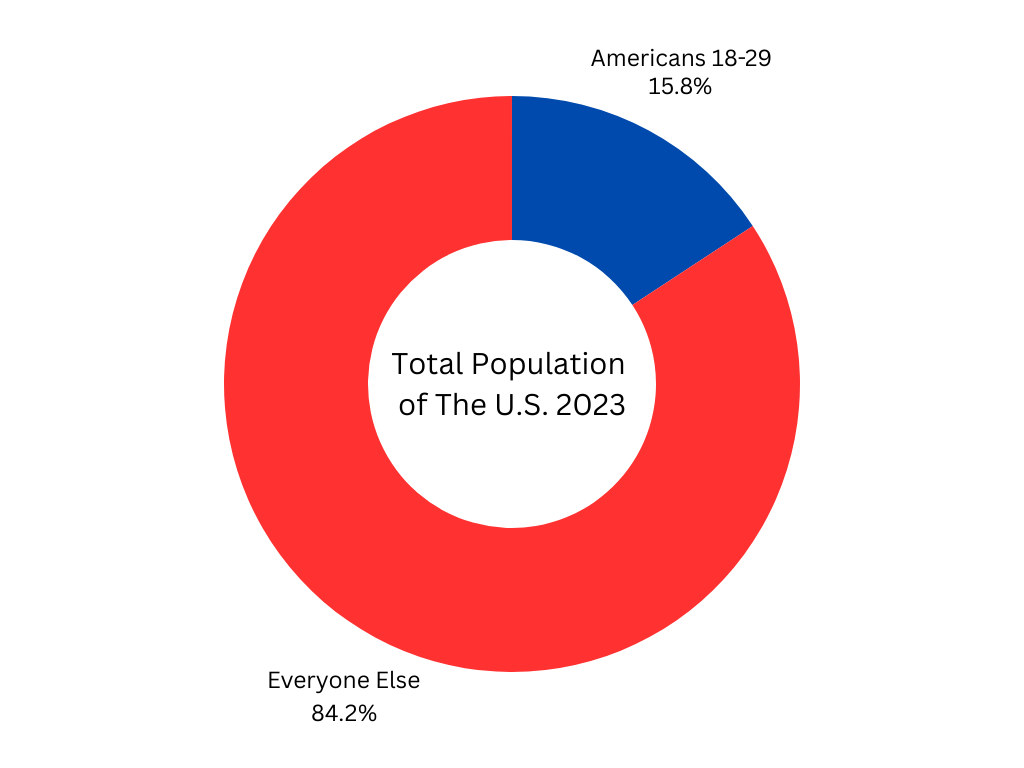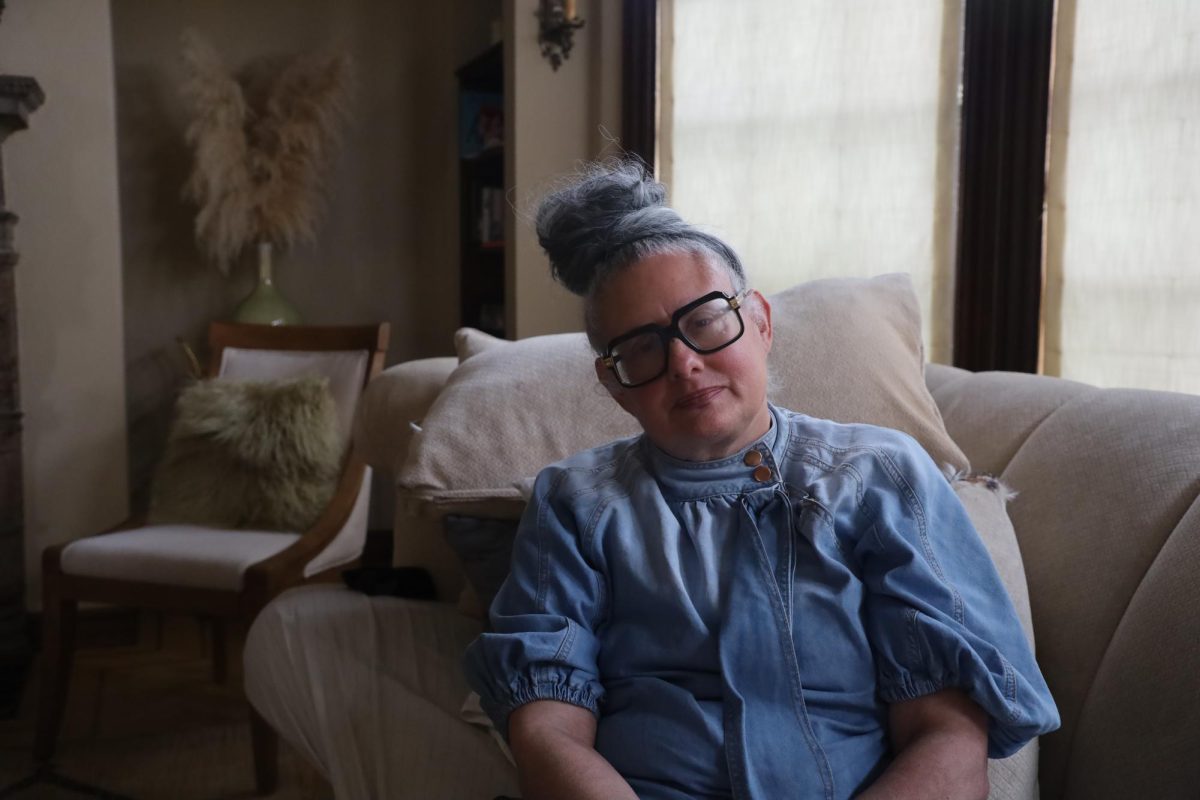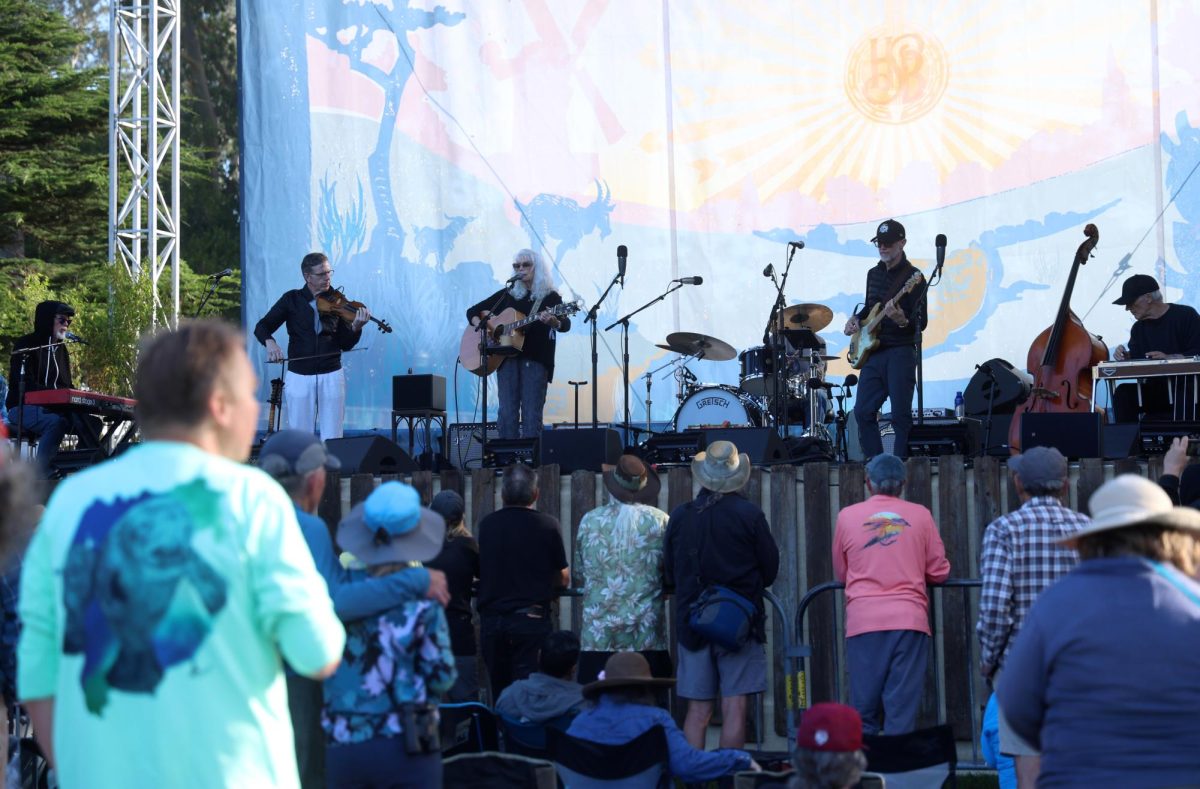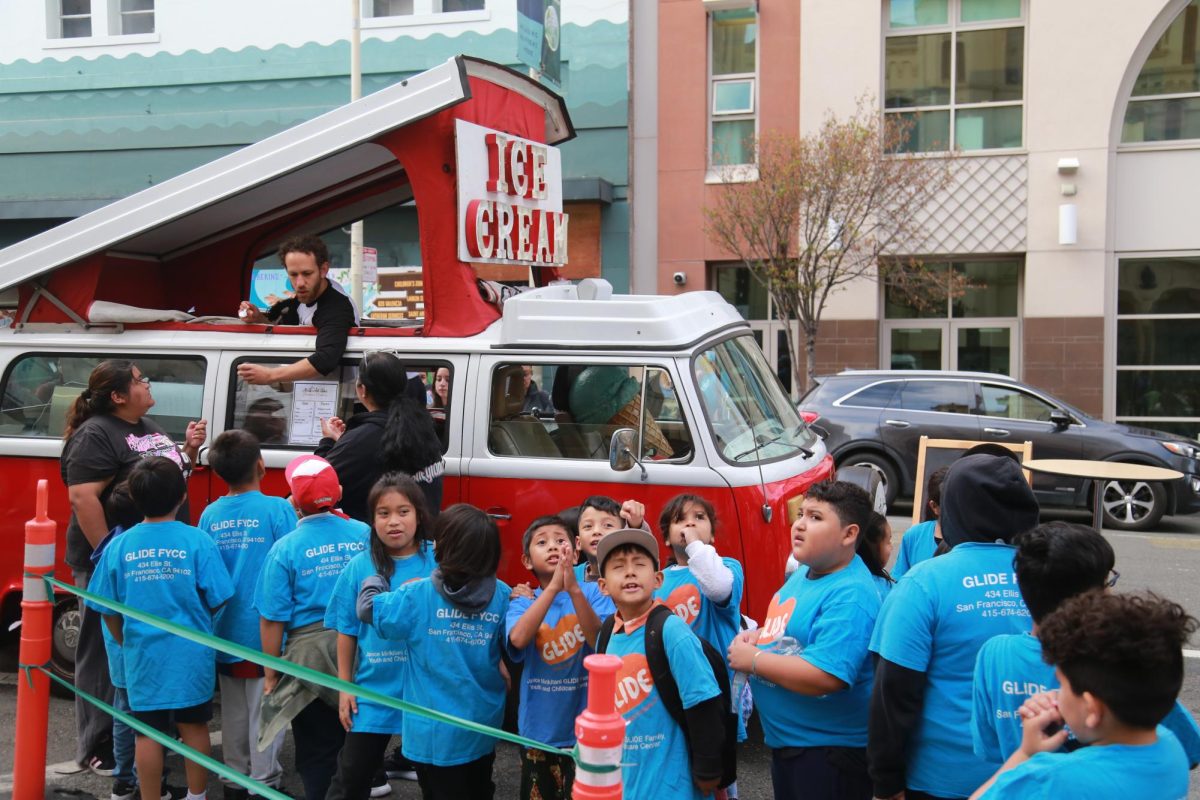Election season is here, and with it comes speculation on the extent to which young Americans — a notoriously democratic but non-voting group — will participate. It’s a common sentiment that this will be a turning point in American history. 62% of Americans and the majority of the members of both parties feel that democracy is under threat, according to research done by the Associated Press. Yet, despite its importance, Gators are divided on the importance of voting, with many feeling apathetic towards the electoral process. Though a smaller part of the total U.S. population, young Americans made up a significant percentage of non-voters.
Barbara Bocanegra is a psychology major at SF State and has yet to register to vote. She is still unsure if she will register, and it would be her first time voting. She believes her peers have not had a conversation about voting and don’t have intentions to vote.
“For me, the person that does align with most of my views would be Kamala,” Bocanegra said. “Solely because of the things Trump has said, I feel like I don’t agree with them. Although, I think Kamala, although she has good perspectives, there’s certain things I think I don’t agree with, specifically with the Palestinian people. I feel like she hasn’t been super clear with what she plan
s on doing and, oftentimes, I’ve seen she gets asked about the Palestinians and it feels like she’s avoiding the question. It’s not something I personally would vote for.”
Many political organizers understand the importance of getting young people to go out and vote, such as Alexis “Tati” Martinez, the programs and outreach coordinator at SF State’s Institute for Civic and Community Engagement (ICCE). According to her, the ICCE published a report stating that overall voting among SF State students has been down since COVID-19, but she hopes that the implementation of the ICCE’s action plan will help get the voting rate on campus up to 80%.
“College students are at a pivotal point in their lives – with more independence than ever before, it can be overwhelming to see voting as another new responsibility as a young adult; however, that makes it just as important,” Martinez said in an email interview. “Conveying to students that voting helps influence decisions that directly affect their jobs, environment and education helps make them feel like their voices are heard and can help shape their futures, both during and beyond university.”

Younger Americans have a less significant impact on voting numbers. According to Pew Research Center, 65% of non-voters were younger than 50 in 2018, with 30% representing the ages 18-29. In 2022, 64% of voters were younger than 50, and 27% were ages 18-29. These high numbers are not parallel with the population. According to Census Data, ages 18-29 only represented 15.71% of the population in 2023, which is about the same as in 2018 and 2022.
According to the data, large numbers of young people don’t vote, many still plan on voting. One such person is SF State biology student Mark Canlapan, who plans on voting — for the first time — for Democratic nominee and current Vice President Kamala Harris. Canlapan feels like young Americans are apathetic toward voting because it feels like they are forced to choose between two bad options.
“I’m just voting for voting purposes I guess, I don’t really have a reason why, I just wanted to,” Canlapan said.
Jason McDaniel, a political science professor at SF State, believes that choosing the better of two bad options is a driving force in American politics and helps explain the nonpartisan sentiment that democracy is under threat.
“Increasingly, American’s political views are motivated more by dislike, fear and hatred of the other party and the core groups that define the other party,” McDaniel said.
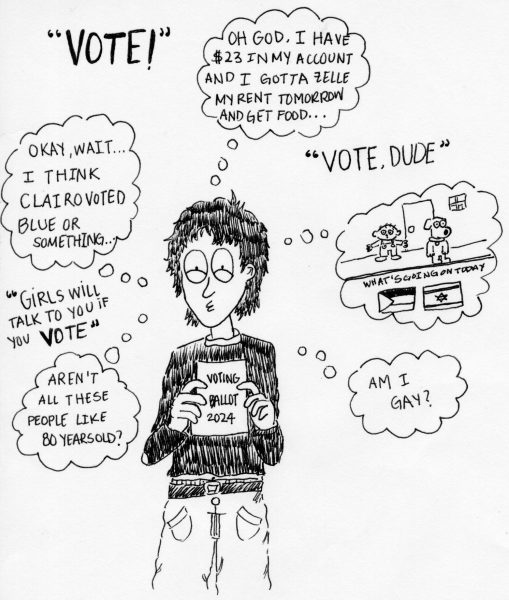
Jackson Kelly is a political science major at SF State and a member of the moot court team. He plans on voting and believes wholeheartedly that everyone votes because of the significance of this election, citing the 2016 election as a reason why voting is important.
“I think it would have gone a different way if there was a greater voter turnout,” Kelly said. “I think a lot of people think ‘my vote doesn’t matter, I live in California where it’s just going to go blue every single time.’ But I think the Republican nominees really like to use ‘the election is stolen because I didn’t lose in the popular vote, they just beat me in the electoral college.’ Because of that individual there needs to be a really definitive ‘not only did the majority of Americans beat you and say they don’t want you in office, but also the electoral college win.’”
Kelly stressed the importance of local elections, stating the impact that the mayoral race will have on issues like homelessness and crime.
“Looking at the entirety of the ballot – not just the presidential election, but all the down-ballot races – it’s really really important to vote, and I don’t think a lot of people see that,” Kelly said. “They just go ‘Oh, it’s not going to matter in the broader general election.’”



